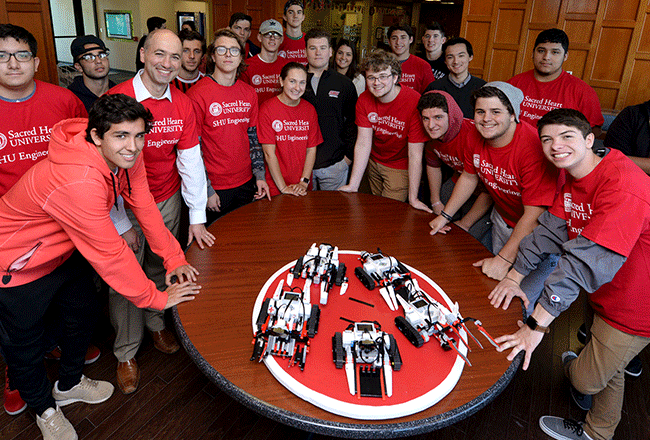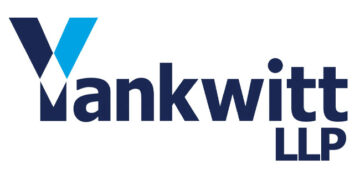
Hope for those suffering from high blood pressure may be on the way, thanks to an international clinical trial whose sole Connecticut participant is Stamford Health.
The ongoing multicenter Radiance-HTN study is being conducted at 21 centers in the U.S. and 18 in Europe. The aim is to evaluate whether an investigational medical device manufactured by ReCor Medical of Palo Alto, Calif. and the U.K. called the Paradise Renal Denervation System can lower high blood pressure, or hypertension, in patients known to have mild to moderate levels of the condition.
In some patients with high blood pressure, the nerves surrounding the blood vessels leading to the kidneys ”” renal arteries ”” are too active, which may cause high blood pressure. The minimally invasive procedure behind the RADIANCE-HTN trial involves the delivery of ultrasound energy to control blood pressure and treat hyperactive renal nerves. A small catheter is inserted into the renal artery and ultrasound energy (heat) is delivered through the tissue surrounding the artery to interrupt the signaling of the renal nerves.
By treating the nerves that run to the kidney, blood pressure may decrease. After both kidneys are treated, the catheter is removed, leaving nothing behind.
“We are excited to be a part of this important study that is not only advancing our knowledge about treatment for hypertension, but also allows certain patients the ability to potentially take fewer or no hypertension medications,” said Dr. David Hsi, chief of cardiology and co-director of the Stamford Health Heart and Vascular Institute, who is serving as its principal investigator of the RADIANCE-HTN trial, in a statement.
“In fact,” he added, “up to a quarter of patients with hypertension have difficulty tolerating hypertension medications or are unable to be controlled by these medications. This is also especially great news for younger patients who may not need to rely on hypertension medication for the rest of their lives.”
Stamford Health Director of Office Research Suzanne Rose said that Hsi”™s knowledge and expertise in the area, as well as his participation in similar trials with other companies, had led to Stamford”™s joining the study, as did her own relationship with ReCor.
“We”™re hopefully going to be able to make real changes to how high blood pressure is treated in the future,” Rose said. Noting that the condition affects one in three American adults, she said that common symptoms include chest pain, impaired vision, fatigue, and irregular heartbeat.
If untreated, she added, hypertension can lead to health conditions such as heart disease and stroke. According to the Mayo Clinic, roughly half the people with untreated hypertension die of heart disease related to poor blood flow (ischemic heart disease) and another third die of stroke.
The ReCor study involves two cohorts: patients with mild to moderate hypertension (RADIANCE-HTN Solo Cohort) or treatment-resistant hypertension (RADIANCE-HTN Trio Cohort). Open to patients between the ages of 18-75 who have a documented history of hypertension, the trial is a randomized, double-blind, sham-controlled study designed to evaluate the safety of the Paradise Renal Denervation System.
Patients either receive ultrasound renal denervation (treatment) or renal angiogram only (sham control, which Rose explained is essentially the same as placebo surgery: a surgical intervention that omits the step thought to be therapeutically necessary). In clinical trials of surgical interventions, sham surgery is an important scientific control method to ensure that the actual procedure is having the planned effect, she said.
Rose explained that ReCor screened 803 patients for the Solo Cohort, with 146 being approved; Stamford screened over 40 and selected six, a ratio she said was similar to that experienced at other participating sites. Enrollment for that cohort is now closed.
Enrollment remains open for the Trio Cohort, which involves patients who are taking at least three hypertension-treatment medications. Those patients, deemed resistant to anti-hypertensive medical therapy, are included to assess the efficacy and verify the safety of the Paradise System.
Six Trio subjects have been enrolled at Stamford under Hsi and Dr. Ted Portnay. Rose said that Stamford expects to finish enrollment in the Trio Cohort by year”™s end.
The “double blind” aspect involves the fact that not only are the study”™s participants unaware of whether they”™ve undergone the complete procedure, but so too are most of the medical staff involved. The purpose of this kind of study is to eliminate the power of suggesting and adds validity to the results, she said.
At Stamford, after the procedures are completed by Dr. Scott Martin, director of interventional cardiology or Portnay, director of cardiac catheterization lab, Hsi and other Stamford Health physicians monitor each patient”™s results and experiences through various follow-up visits over the course of the next three years.
Six months after the procedure, participants will learn if they received the therapy. Those who did not may then have the opportunity to undergo the procedure, Rose said.
In May ReCor announced that the RADIANCE-HTN SOLO study met its primary efficacy endpoint and demonstrated a statistically significant reduction in blood pressure in hypertensive patients. Rose said that initial results have been similarly positive at Stamford.
“The people who have participated in the study here have been really enthusiastic,” she reported. “They”™re all for any therapy that can help them and in the case of reducing medications, that”™s something we all are striving for.”
All told, “This has been a very positive experience,” Rose said. “We”™re very happy to be in a position where we can try to help move science forward.”



















